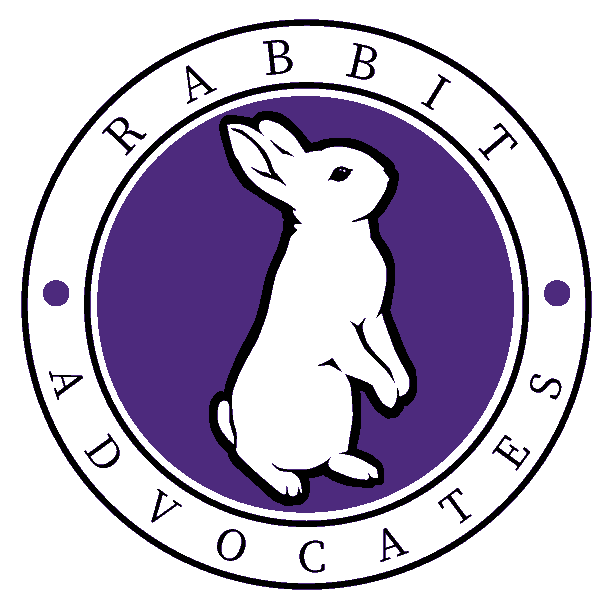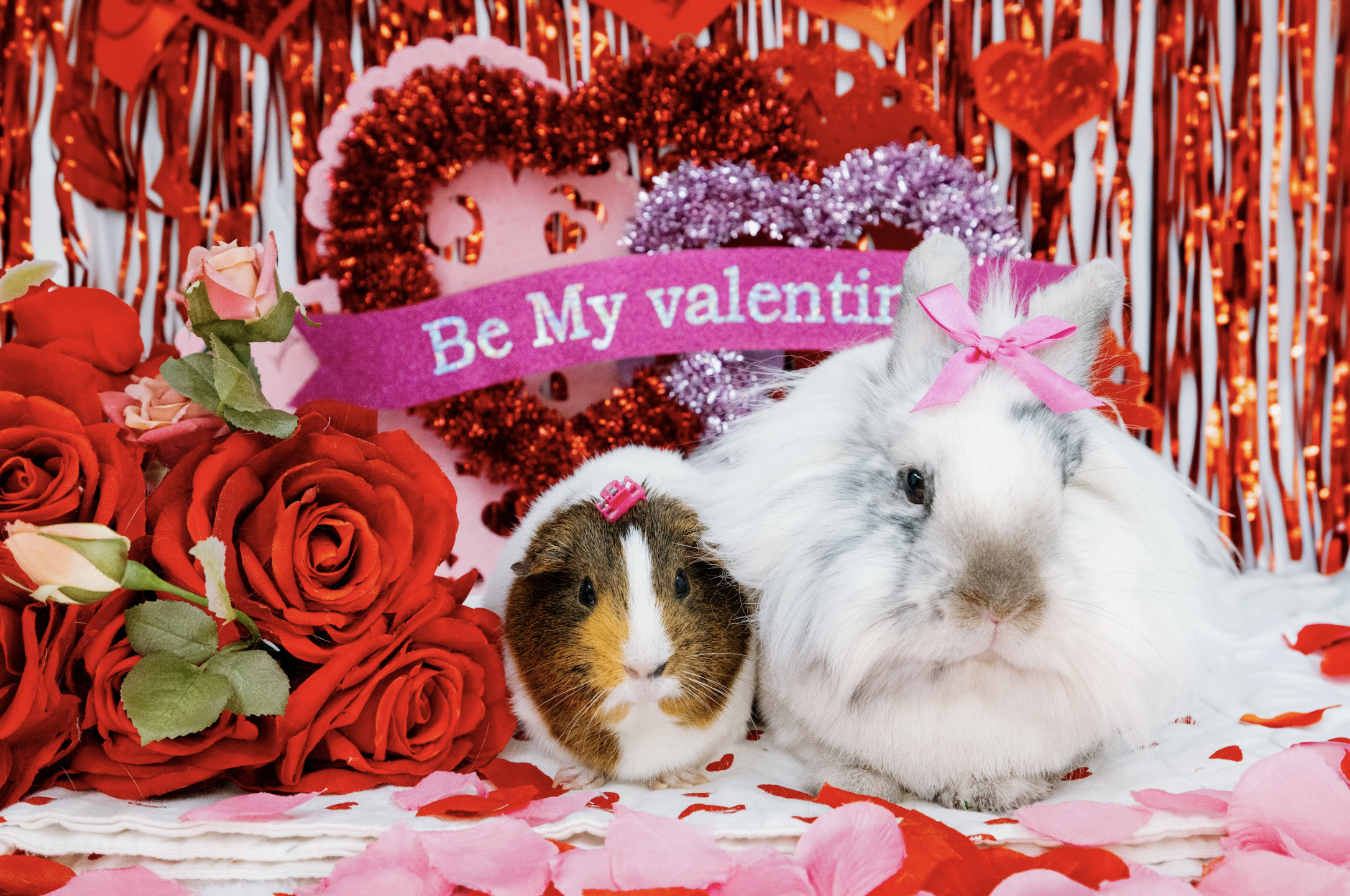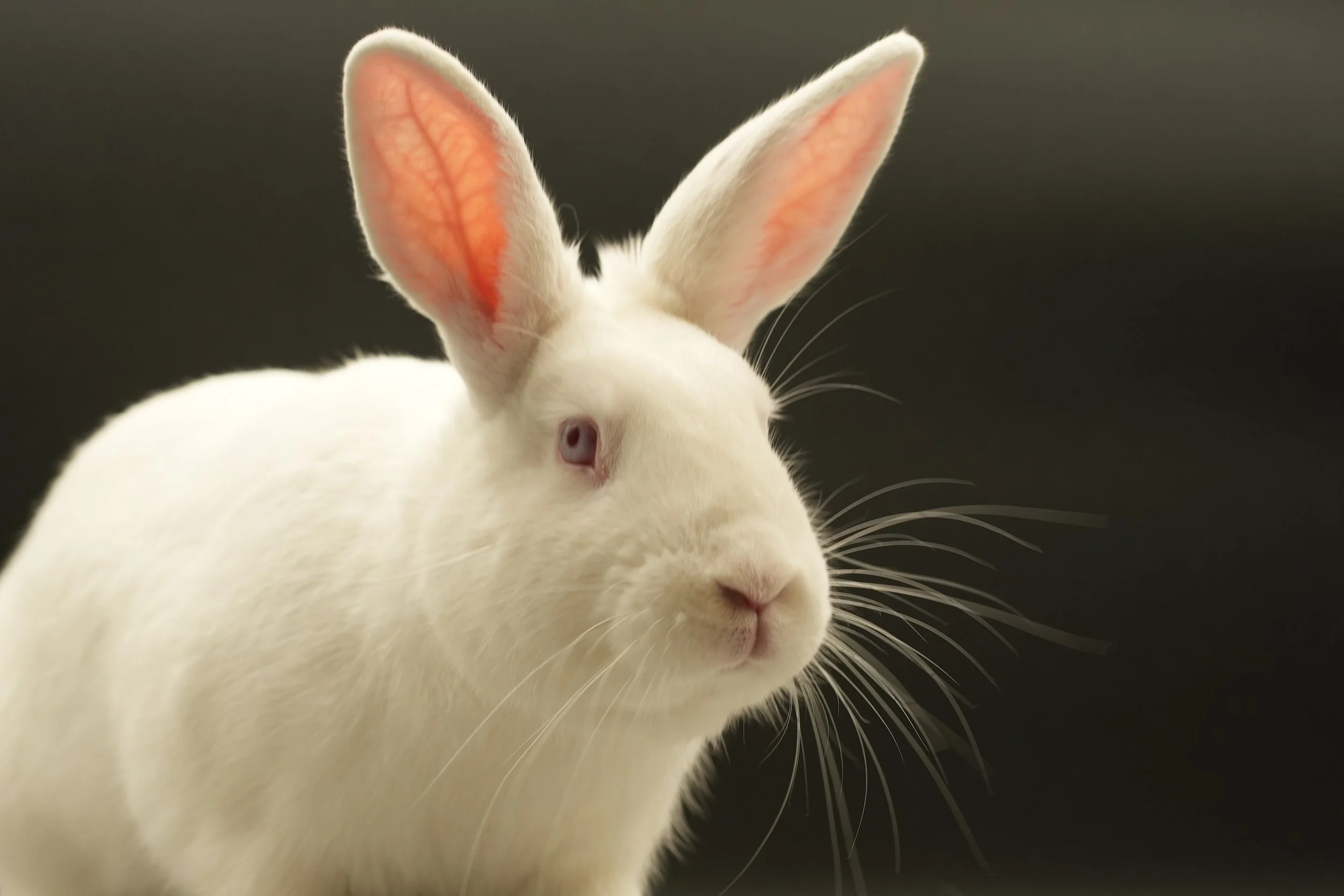
Rabbit Advocates
Rabbit Advocates serves the greater metropolitan Portland, Oregon and Vancouver, Washington areas, promoting the welfare of domestic rabbits.
Rabbit Advocates is an all-volunteer 501 (c)(3) non-profit. Our work is supported by your donations and through fundraising efforts such as the sale of our Bunny’s Best Bites hay, Bunny Spa Days, and the annual Bunny Palooza event.
Advocating for Bunnies!
Start having conversations with friends, families and coworkers, who might make impulse decisions to purchase bunnies. Following this list will help alleviate the problem of rabbit abandonment and overpopulation.
1. Adopt from a rescue.
There are more than 200 rabbits living on the streets of the Greater Portland, Oregon Area who need help, and most rescues spay/neuter the bunnies prior to adoption.
2. Foster first!
Fostering a bunny or pair is a great way to see if a bunny is a fit for your home, determine if allergies to bunnies or hay might be an issue, and learn more about house rabbits in a supportive community.
3. House bunnies indoors.
From parasites, to Rabbit Hemmorrhagic Disease Virus, to prowling predators, outdoor housing is never safe. Housing your rabbit(s) indoors also enables people to get to know their personalities and integrate the bun(s) into their lives like cats and dogs.
4. Cages, crates, and hutches are never enough space.
Small bunnies need access to a minimum “footprint” of 16+ square feet on one level at all times, including at night. Larger bunnies and pairs need at least 20+ square feet at all times. Rabbits need space to exercise to keep their GI tract moving and to maintain muscle tone.
5. Spay/neuter all rabbits.
Rabbits who are not spayed/neutered in their younger years (ideally prior to 2-3 years old) are at higher risk of developing reproductive cancers that can easily spread. Many people are not certain of their bunnies’ sexes and end up with homeless litter(s).
6. Litter train bunnies with a big litter box and plenty of hay.
It is usually easy to train spayed/neutered rabbits to use a litter box which means they’ll be better behaved, less messy, and will enjoy more freedom.
7. Find a bunny-savvy vet.
Rabbits are considered “exotic” and many vets only treat cats and dogs. Find a vet who understands rabbit behavior and health issues. Rabbit Advocates has a list of Portland area vets who see rabbits on our website. Bunny-savvy vets are also more likely to offer the vaccine against Rabbit Hemorrhagic Disease Virus Type 2.
8. HAY, not carrots!
The single most important source of nutrition and fiber for bunnies is hay. Bunnies love timothy hay, orchard grass, oat hay, and prairie grass. Baby bunnies love alfalfa hay. Contrary to what you might expect, bunnies should not eat carrots except for a tiny nickel-sized piece as an occasional treat. Carrots and common fruits are too high in sugar and starches which can be dangerous for bunnies.
9. Consider adopting a bonded pair.
If you do not yet have bunnies, consider adopting an already-bonded pair. If you end up with a solo bunny, once everybunny is fixed, see if your bunny would like to have a bunny companion. Approximately 80% of fixed rabbits prefer to live with a lagomorph companion.
10. Have fun!
Bunnies are a wonderful source of joy. When properly cared for, spayed/neutered, and fed plenty of fresh hay, they can live for 10-14 years and be a part of the family just like cats and dogs.
Rabbit Advocates has many adorable single bunnies and bonded pairs available for adoption. We invite you to adopt, not shop!
Can you welcome a foster rabbit into your home? The number of foster families directly impacts how many bunnies we can rescue.
As a 501(c)(3) charity, your donations provide medical care and supplies for rescued rabbits, and support educational outreach.
Help RA Raise Money to Save More Bunnies!
View our limited edition line of tees, sweatshirts, hoodies and canvas totes featuring all Rabbit Advocates rescue bunnies.
100% proceeds go to Rabbit Advocates medical fund. Your purchase will help fund the spay/neuter of new intakes, the medical care of the foster bunnies at RA, and RHVD2 vaccination efforts.












